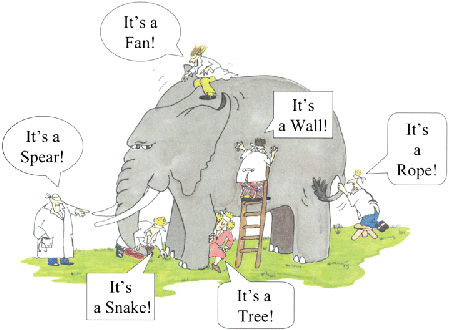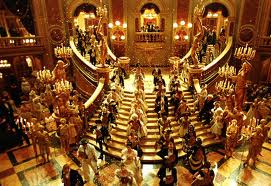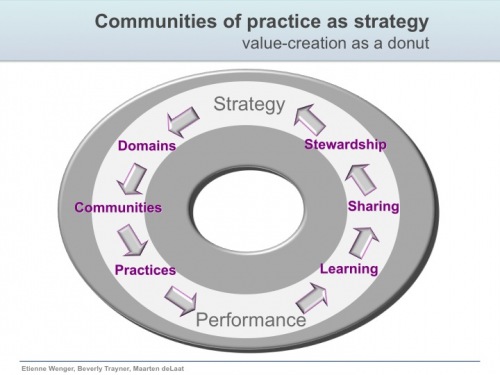This is my response comment to Jeffrey on my previous post.
Hi Jeffrey, Thanks for sharing your thoughts, and helping me to think about some of the critical “elements” of MOOC. I could see how challenging it could be to navigate and aggregate the network information, via visiting various blog posts, and making connections to ideas and or people with MOOC. You are probably not alone with this experience. I did feel overwhelming when I was too involved in “every post” and every referred articles by facilitators in the past MOOCs. Instead, I chose what interested me, and what may help me in achieving my goals, together with an attempt to support others in reaching their goals, through posting and commenting. After a few iteration, I did sense a pattern, about my own sensemaking, and wayfinding, that may be different from others. I tended to be more interested in the affective domains (emotional aspects) when connecting via blogs, and in critical thinking and reflection when connecting to artifacts and ideas. So, my understanding of Community and Community of Practice happens to fall on similar lines with the Meaning, Learning and Identity that I learnt through COP (Etienne Wenger), and furthermore, I prefer to think in terms of metaphors when it comes to COPs and its development.
What is a metaphor for such a COP within a MOOC? A virtual wonderland with a performance stage where real people (directors, actors, supporters, audience) meet and share their repertoire, design their plays, having dialogues with certain actors, and having rehearsals, and acting out their plays in front of an international audience. There are also demonstration plays (by the guest speakers and facilitators) to showcase the best practice, so as to allow other actors to “learn” through watching and interaction. So, each participant in MOOC would play out their roles as active actors – the directors (facilitators), actors (each of “us”) or audience (lurkers) or supporters (again each of us at various times). These actors are nodes in the network/community.
(a) What do you feel about #change11 being a connected or networked or community?
In this respect, I do sense change11 as a connected network and community, whereas the members are participating in a pattern similar to the typical 1-9-90 to 10-20-70 participation pattern, as new members would likely participate in the peripheral (like lurking) before they play a more active part in the community. I also realised that some changes in the roles among the participants are self-organising themselves – to choose who, where, when, how and what to play with their own plays (tasks), with the artifacts created shared with other actors.
(b) Do you feel you are a member of a community or have otherwise made connections around some shared repertoire?
I do feel I am a member of the MOOC community. May be this was due to my previous participation and involvement in the MOOCs, starting with CCK08, then CCK09, CritLit2010, PLENK2010, CCK11 and eduMOOC (though I was just a lurker) etc. I was involved in the Ning (ConnectivismEducationLearning) and Facebook (ConnectivismEducationLearning) and various wikis on Connectivism. I have met “hundreds” of wonderful people, though I could only manage to be more fully connected to “tens” of wonderful members of the community. I believe the relationship that was built up through the connections was based on our meeting of “minds” – not only of like minds, but also unlike minds. That’s what I found it valuable in a community – where each of its members have own views and perspectives, and an understanding of perspectives of others is what makes learning more interesting. This is similar to a metaphor that I have used about the understanding of a digital elephant (the internet, vast arrays of information). With an international community, we would each observe and sense about this elephant differently, but also share our understanding via networking, adding a deeper understanding about the cultural, educational and ecological aspects of internet and web.
(c) What are some of the shared repertoire? I would refer to the Community shared repertoire. These include PLE, Eportfolios and artifacts (in the forms of blogs, Twitter, slideshares, videos, digital stories, synchronous session recordings, etc.), curation & collectives (scoop, bit.ly, delicious, gRSShopper, OLDaily), conversation, forum (FB, Google+, Google Doc (research group), Change Daily discussion, etc.)
Photo credit: Etienne Wenger et al.
Finally, the community of MOOC that I could sense is somehow different from the conventional face-to-face community or the various online community which has stated common goals or vision, or having a structured way of functioning.
Sorry that this has become a long comment in response. I hope I have shared my feelings and thoughts about MOOC with you through such a “glimpse” of experience.
John
Does the community defined there match that in MOOCs (the emergence of MOOCs – CCKs, CritLit2010, PLENK2010, eduMOOC, MobileMOOC and this Change11)?
In order to gain a deeper understanding of others’ interpretation of COPs, would you mind posting your responses to the following questions?
1. How would you define a community of practice?
2. What are the characteristics of a community of practice?
3. Is MOOC (e.g. Change11) a community?
4. Is MOOC a community of practice? Is yes, what makes it a COP? If no, what is needed to make it a COP?
5. What are the merits and demerits of MOOC being a Community of Practice?
I would consolidate the responses in coming post, if you (participants of Change11) all agreed. I would report on the findings in research wiki or article if you think that is appropriate.
May be this is also an attempt to conduct research in an open manner.
Comments?
John






















